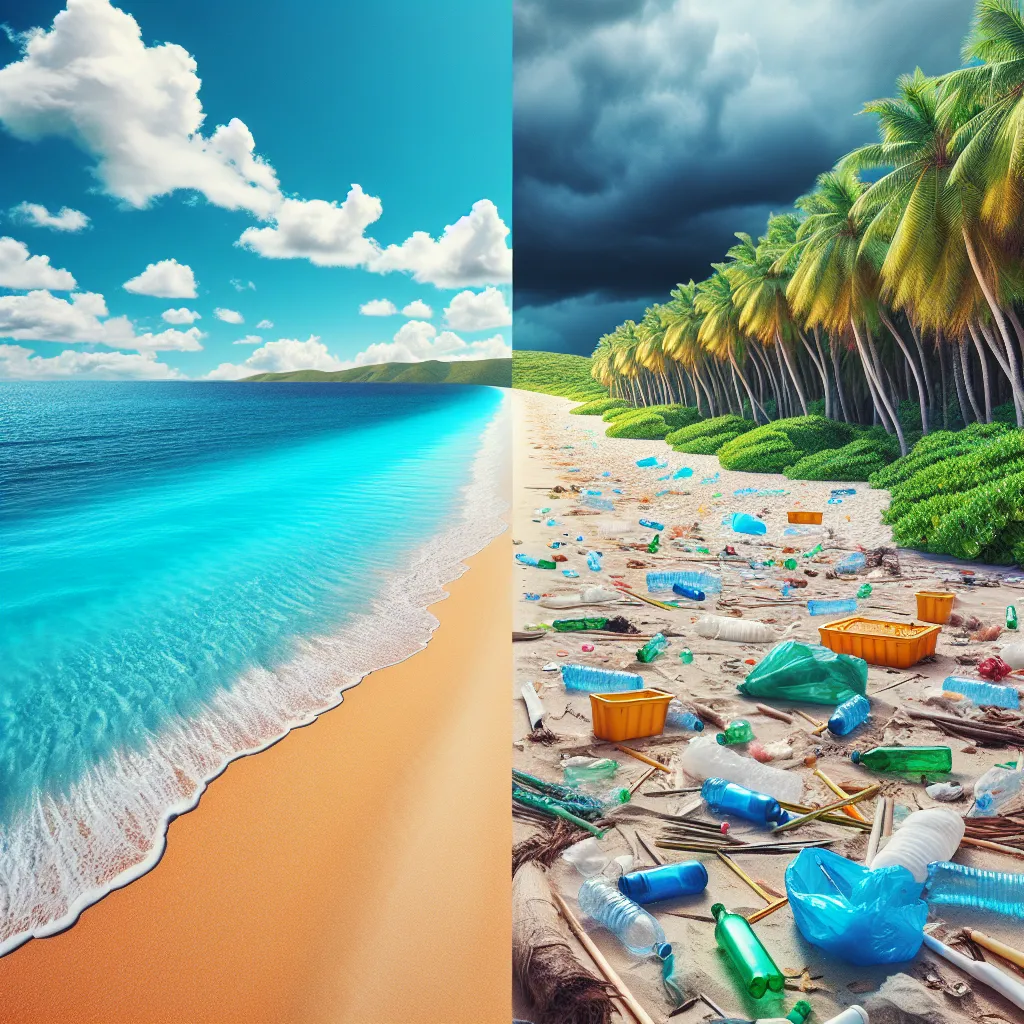The relationship between tourism and the environment is a hot topic in IELTS Writing Task 2. This essay type often asks you to analyze the impact of tourism, both positive and negative, and propose solutions for sustainable tourism development.
Here are some potential IELTS Writing Task 2 questions related to this topic:
- It is inevitable that tourism will have a negative impact on the environment. To what extent do you agree or disagree?
- Tourism is often seen as a positive activity that brings economic benefits. However, what are the negative environmental impacts of tourism, and how can they be minimized?
- Some people believe that tourism is always detrimental to the environment. Others argue that it can be beneficial. Discuss both views and give your own opinion.
Sample Essay:
Let’s choose the second question for our sample essay:
Tourism is often seen as a positive activity that brings economic benefits. However, what are the negative environmental impacts of tourism, and how can they be minimized?
Analysis:
This essay question requires you to discuss both sides of the issue – the economic benefits and environmental drawbacks of tourism. You should provide specific examples of negative impacts and suggest feasible solutions for minimizing them.
Model Essay:
Tourism, a burgeoning global industry, is frequently touted for its economic benefits, injecting revenue into local communities and creating job opportunities. However, it is imperative to acknowledge and address the detrimental environmental consequences that often accompany this industry’s growth.
One significant concern is the degradation of natural habitats. The construction of hotels, resorts, and other tourist infrastructure often encroaches upon pristine ecosystems, leading to habitat fragmentation and biodiversity loss. For instance, coastal development driven by tourism can destroy coral reefs, crucial marine ecosystems that support a wide array of species. Moreover, increased tourist footfall in fragile environments like mountain trails or deserts can lead to soil erosion, vegetation loss, and disruption of wildlife patterns.
Furthermore, tourism contributes significantly to pollution. The transportation of tourists by air, road, and sea generates a considerable amount of greenhouse gas emissions, exacerbating climate change. Additionally, the improper disposal of waste, particularly plastic, by tourists can contaminate water sources, damage natural landscapes, and harm wildlife. For example, plastic pollution in popular tourist destinations like Bali has become a major environmental concern.

Mitigating these adverse impacts requires a multi-faceted approach. Governments and tourism operators need to prioritize sustainable practices such as implementing stricter environmental regulations for construction projects, promoting eco-friendly transportation options, and encouraging responsible waste management through recycling and composting initiatives. Educating tourists about the importance of respecting local environments and cultural sensitivities is also crucial. Tourists can contribute by making conscious choices, such as opting for eco-friendly accommodations, minimizing their carbon footprint, and engaging in responsible wildlife tourism.
In conclusion, while tourism offers undeniable economic advantages, it is essential to recognize and address its potential environmental repercussions. By embracing sustainable practices, raising awareness, and encouraging responsible tourist behavior, we can strive to minimize the negative impacts and preserve our planet’s natural beauty for generations to come. (Word count: 326)
Writing Tips:
- Clear structure: Use a clear structure with an introduction, body paragraphs, and a conclusion to present your ideas logically.
- Specific examples: Support your points with relevant and specific examples to make your arguments more persuasive.
- Balanced view: Discuss both the positive and negative aspects of tourism, demonstrating a nuanced understanding of the issue.
- Vocabulary range: Use a wide range of vocabulary related to tourism and the environment to showcase your language skills.
- Grammar accuracy: Pay close attention to grammar and ensure that your sentences are free from errors.
Useful Vocabulary:
- Burgeoning (adj.) /ˈbɜːrdʒənɪŋ/: rapidly growing or expanding.
- Degradation (n.) /ˌdeɡrəˈdeɪʃn/: the process of becoming progressively worse.
- Encroach (v.) /ɪnˈkroʊtʃ/: intrude on (a person’s territory or a right).
- Fragile (adj.) /ˈfrædʒl/: easily broken or damaged.
- Mitigate (v.) /ˈmɪtɪɡeɪt/: make something less severe, serious, or painful.
- Eco-friendly (adj.) /ˈiːkoʊˌfrendli/: not harmful to the environment.
- Sustainable (adj.) /səˈsteɪnəbl/: able to be maintained at a certain rate or level.
- Biodiversity (n.) /ˌbaɪoʊdaɪˈvɜːrsəti/: the variety of life in the world or in a particular habitat or ecosystem.
- Habitat fragmentation (n.) /ˈhæbɪtæt ˌfræɡmənˈteɪʃn/: the process by which habitat loss results in the division of large, continuous habitats into smaller, more isolated remnants.
- Carbon footprint (n.) /ˈkɑːrbən ˌfʊtprɪnt/: the amount of carbon dioxide released into the atmosphere as a result of the activities of a particular individual, organization, or community.
Conclusion
The impact of tourism on the environment is a complex and multifaceted issue that requires careful consideration. By understanding the potential drawbacks and implementing sustainable practices, we can work towards minimizing the negative consequences of tourism and preserving our planet for future generations. Remember to practice writing essays on this and similar topics to improve your ability to articulate your thoughts effectively in the IELTS exam.